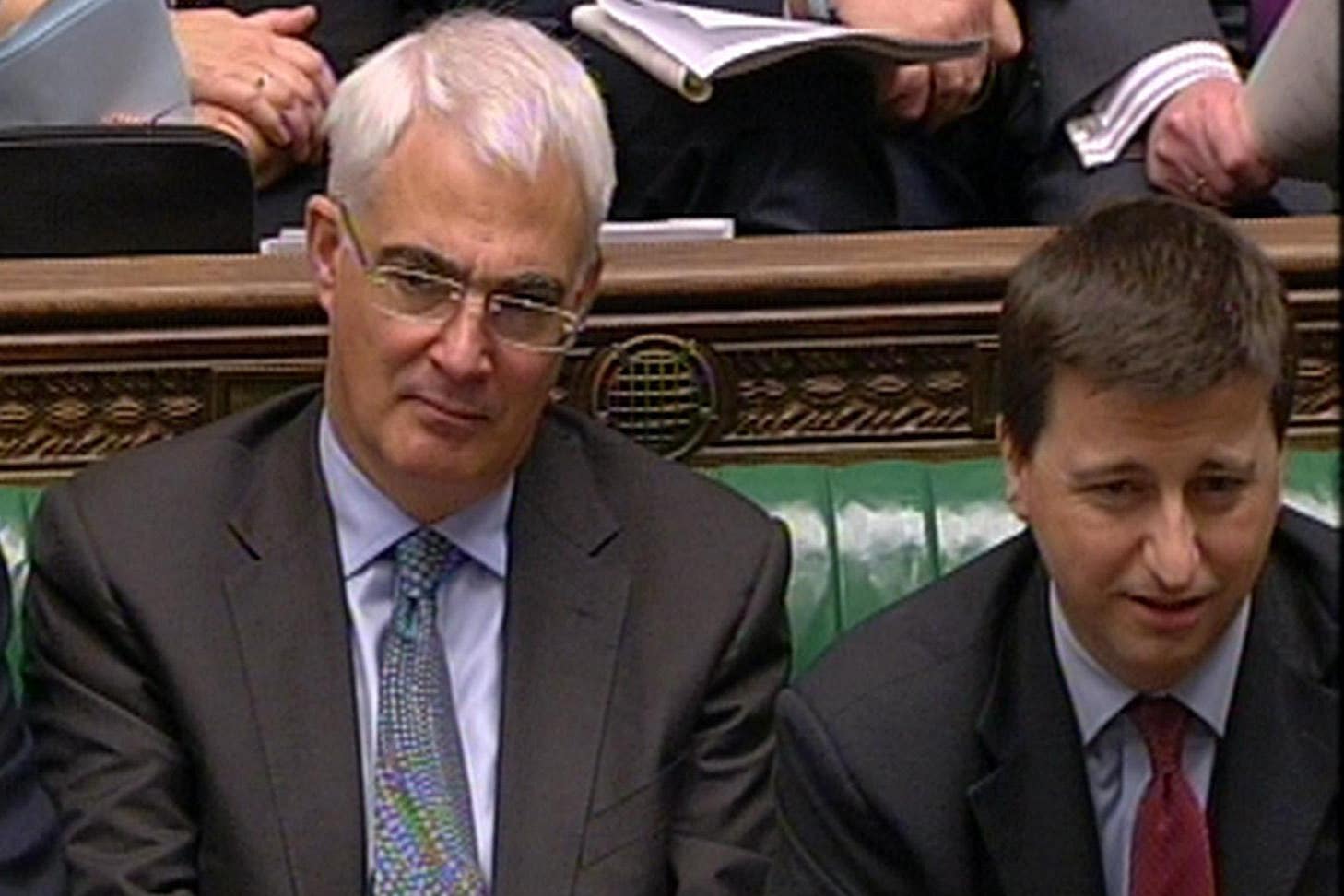Scotland lost ‘one of our finest sons’ with death of Darling, says ex-colleague
The family of the former chancellor announced on Thursday he had died aged 70.

Scotland has “lost one of our finest sons” in Alistair Darling, former Scottish secretary Douglas Alexander has said.
The former chancellor’s family announced on Thursday he had died aged 70.
He has been remembered in tributes for his “calmness in a crisis” and “wry good humour”, although Mr Alexander said his friend – who he described as “one of the good guys” – would have “hated all the fuss”.
Speaking to BBC Radio Scotland on Friday, Mr Alexander said: “Truthfully, I think Scotland has lost one of our finest sons in what happened yesterday.
“It’s a terrible, terrible tragedy, not just for, first and foremost, the family but for our public life which Alistair graced for more than 30 years.”
Born in London and educated at Loretto School in Musselburgh and Aberdeen University, Mr Darling won the Edinburgh Central seat for Labour in 1987 and held it and its successor constituency Edinburgh South West until 2015, when he was made a life peer.
As well as stewarding the country’s economy through one of its most perilous economic crashes on record, Mr Darling also led the successful campaign against Scottish independence in the lead up to the 2014 referendum.
Mr Alexander served with the former chancellor on the pro-union Better Together campaign as well as in government.
He recalled the solidity his friend brought to the team during the shaky final weeks of the referendum campaign, when a Sunday Times poll just days before the vote put the Yes side marginally ahead.
There was a solidity and a quiet confidence that endured in those difficult times
“You get a measure of someone’s character and strength of character in the tough times more than in the easy times,” Mr Alexander said.
“And he was just as solid that day as he was the night of the referendum debate when he bested Alex Salmond.
“There was a solidity and a quiet confidence that endured in those difficult times.”
Mr Alexander also spoke of the affection afforded to Mr Darling by international figures due to his actions in the wake of the 2008 economic crash.
Henry Paulson, the former US treasury secretary, he said, was “effusive in the tributes he paid to Alistair” in a meeting last month.
Mr Alexander said that during the financial crash, Mr Darling understood it was a “solvency crisis, not a liquidity crisis”.
He added: “It wasn’t just that they had to get through the next 24 hours, but actually in a way that Alistair would never have imagined, the British state was going to have to stand behind Scotland’s banks and the UK’s banks.
“In that sense, we were well-served by not just his calmness but his intellect and his judgment at what was a really critical time for the country.”
In the wake of the crash, with UK banks seemingly on the brink of collapse, Mr Darling was able to negotiate a £137 billion bailout package.
Former prime minister Gordon Brown, speaking to BBC Radio 4’s Today programme, said briefings against Mr Darling in 2008 as he warned of a severe recession following the crash were “completely unfair”.
Mr Brown described his chancellor as a “compassionate politician who wanted to get things done” but was “always very quiet in the way he did it”.
Mr Darling remarked in 2010 that Mr Brown’s No 10 had unleashed “the forces of hell” against him through negative briefings after he warned of a severe recession in 2008.
The former prime minister said one of the problems of government was that “you have lots of people said to be briefing on your behalf who you don’t even know the names of”.
Asked if he had apologised to Mr Darling afterwards, Mr Brown said: “If there had been a briefing against him that was attributed to me, yes, of course. I mean that was completely unfair.”
Bookmark popover
Removed from bookmarks